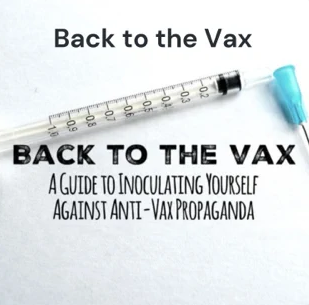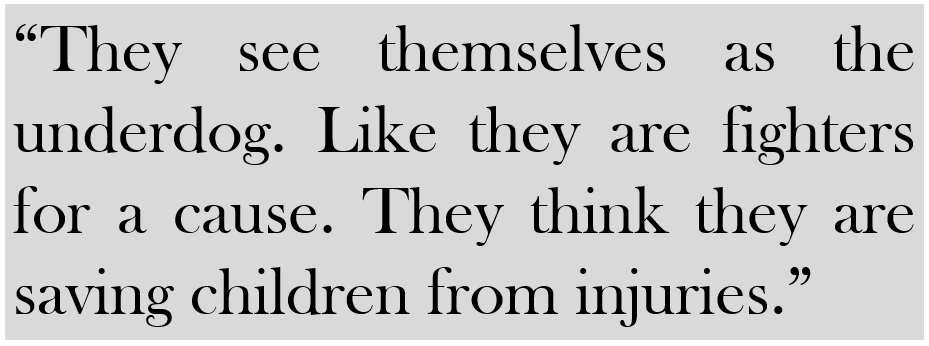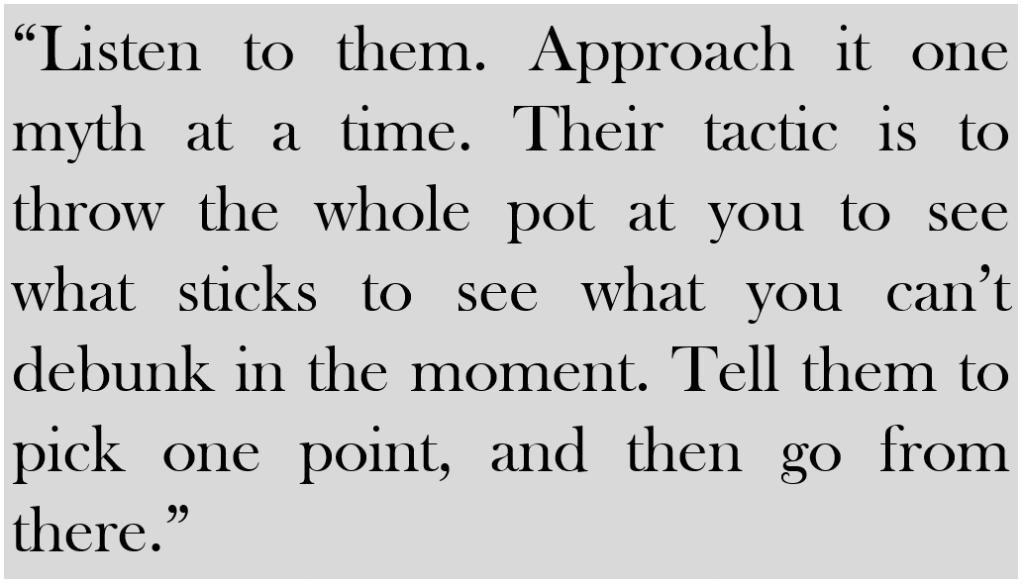The WHO reports that as of October 2021, there have been more than 237.6 million confirmed cases of COVID-19, and the death toll is now more than 4.8 million deaths worldwide. However, tried-and-tested vaccines continue to be delivered across the globe, strengthening our arsenal to defeat this microscopic enemy. As of 10 October 2021, more than 6.36 billion vaccine doses have been administered. (Note, some vaccines require more than one dose to provide maximum protection, so this does not translate to 6.36 billion fully vaccinated individuals).
Despite the protection these vaccines offer, there has been strong pushback. This vaccine hesitancy can vary along a spectrum to include conspiratorial beliefs and distrust/misunderstanding of the technology. Unfortunately, this pushback has slowed efforts to end this pandemic, costing people lives and undue suffering—a cost borne mainly by the vaccine-hesitant. However, other people are paying the price as well, and it is a price many more may face. The more this virus infects people (especially among the unvaccinated), the higher the chances this virus will mutate into a form that eludes current vaccines. [Note: we have provided our readers with a growing list of educational resources for various COVID and vaccine-related concerns people may have, as well as resources about vaccines in general.]
However, vaccine hesitancy has been a problem even before this pandemic. Dangerous misinformation can be found in many corners of the internet, scaring regular people into believing vaccines are dangerous. This misinformation has been especially influential on caring parents. The ardent believers are often known as “anti-vaxxers,” and they have formed their own online communities that help recruit new members and support each other, despite believing falsehoods.
But sometimes, a devout member questions the wisdom of their belief and begins the process of changing their mind. Lydia Greene is one such former anti-vax mom. After twelve years of believing vaccines were dangerous, she opened her mind and accepted the evidence showing that (with few exceptions) vaccines are safe and effective. Her friend, Heather Simpson, shares a similar story. Together, they now lead a project called Back to the Vax.

They started Back to the Vax in early 2021 to help inoculate people from the dangers of misinformation, as well as help vaccine opponents who are now questioning their beliefs. Lydia and Heather help these people by sharing their stories and offering educational resources on social media and their podcast. They have been guests on various podcasts (see link), and their project has been depicted on CNN, Newsweek, and Parents Magazine. Lydia was kind enough to do an interview with Daniel Walsh, the creator of Sgt Scholar.

Hi Lydia, can you briefly tell our readers about yourself and your project at “Back to the Vax”?
Changing your mind can be hard, and it can be lonely to leave a community you once trusted. We want to give people changing their minds a soft place to land and a safe place to talk about it. We also want to arm them with information, which is why we have a few experts in our group, and why we interview experts on our podcast.

What can you tell us about reaching your initial views against vaccines? How long did it take? What were the key influences, concerns, and arguments that led you on that path?
It took me about 3 months to become completely antivax. It was after I was brushed off by a nurse regarding my 2-month-old’s reaction to a vaccine. I didn’t get a good explanation and the antivax mothering group I was on gave me one.
Did you find this parent’s group on social media?
I found it on the internet via searching for breastfeeding information. It’s a forum. Back in 2008 forums were the big thing.
What was it about the “vaccines are bad” argument on the forum that made them persuasive?
There are a lot of unanswered questions out there. A lot of health issues in children. A lot of anecdotes with pseudoscientific explanations of plausible-sounding mechanisms. It gives a parent a way to feel like they have control.
Was this a gradual process in becoming opposed to vaccines?
Yes, at first, I was just afraid of DTaP. I partially vaccinated my daughter at 4 months, skipping DTaP, and then by her 6-month appointment, I was no longer vaccinating. This is why I think even slow vaccination and selective vaccination ultimately lead to antivax beliefs. The whole point is rooted in the idea that vaccines are poison.
How long did you oppose vaccines?
I stopped vaccinating after my daughter was 4 months old. I had 2 more kids. I did not vaccinate them until my oldest was 12. The other 2 were 5 and 2 years old. [A total of 12 years].

What is it like among the vaccine-opposed/vaccine-hesitant community?
Tribal, cult-like. Full of fear and superstition.
Can you describe what aspects of the group made it feel cult-like?
It felt cult-like because if you questioned the common myths, they would scare you back into it. They also seemed to prize purity like a cult. Like the unvaxxed are healthy and pure, and the vaxxed are damaged. Lots of focus on exclusive breastfeeding, low toxins, organic food, to be as pure as possible.
As a former insider, how would you describe the different types of vaccine hesitancy?
There are the super-hesitant that are just too confused about all the information and feel paralysed to make a move. There are the religious health freedom ones who believe your health is your responsibility and yours alone. They can be religious, but there is also a satanic panic element to their choices. Then there are the full-out conspiracy theorists that believe every theory out there, from lizard people to flat earth.
What types of people do you believe are at the most risk of being misled by rhetoric against vaccines?
I think parents that have a lot of anxiety and want to do what’s best for their child can be easily scared out of vaccination.
I know there is no simple answer here, but in what ways would you say the vaccine-opposed community strengthened or weakened during this pandemic, and why?
Political pandering and polarization have strengthened the antivax movement and increased their numbers probably 10-fold or more.
Many people among the public view those opposing vaccines as “stupid,” alleging a lack of intelligence leads to their views. However, many researchers who study vaccine-opposition believe this is a mischaracterization of regular people who have been misled. What are your thoughts on this?
There are some very convincing studies and data if you don’t understand the hierarchy of evidence, such as certain aluminum studies. They are small and underpowered, but the antivax community holds onto them anyway. Even intelligent people can be confused. Add a doctor spreading this stuff, and it’s even more convincing.

Did other community members share their stories with you? Have you noticed any common trends in what led other vaccine opponents down this road?
Most often, they are scared into it one way or another. Not vaccinating is presented as a magic wand that will keep poor health outcomes away. Don’t want an asthmatic allergic child? Simple, don’t vaccinate.
In your opinion, how influential are the most notorious vaccine opposers, such as RFK Jr., McCarthy, Wakefield, etc.? What qualities make these figures so popular among the community?
They paint themselves as heroes and underdogs. Who doesn’t love a good underdog story? They abuse their titles to push misinformation in a believable way. When an anti-vax doctor shows you an underpowered antivax study (some actually aren’t even about vaccines, just certain elements and pollutants which they then tie into vaccines), and explain the mechanism, it sounds very convincing. Add in their anecdotes and it’s now verified.
How do their speeches, interviews, articles, books, etc., influence these forums/groups?
It acts as fuel to keep you going when you start to doubt yourself. You will get confronted and then turn to their articles and “data” to soothe the cognitive dissonance.

How do you think vaccine opposers perceive themselves, their community, and the scientific/medical community?
They see themselves as the underdog. Like they are fighters for a cause. They think they are saving children from injuries.
And how do they perceive the medical science community?
They literally call them evil and “Big pHARMa.” It’s almost like a caricature of an evil mustached man holding a bag with a dollar sign on it. That is how they look at the mainstream medical establishment. It’s very black and white, and good and evil.
Are pediatricians viewed as evil, too?
Yeah, because the AV view is that they are covering up vaccine reactions for big pharma. They think that they hide that SIDS and autism are vaccine injuries.
I’ve heard that vaccine opposers will sometimes coordinate with each other to harass vaccine supporters’ pages on social media. Did you see anything like this happen? How often do you think it occurs?
I personally have not seen this. However, Pediatrician Dr Nicole Baldwin has experienced this and it was awful. There were round-the-clock attacks on her social media and practice.

Can you describe the process of how your mind changed?
I started reconsidering everything when I realized I was wrong about one key thing, the blood brain barrier. I thought it took a couple of years to mature. Babies are born with a mature BBB. Dr. Abraham Alahmad explained to me in great detail how it is impossible for vaccines to cross the BBB. He is a world-renowned expert on the BBB, and I now know PS80 [an ingredient in some vaccines] can not open the BBB, and we are exposed to much more Aluminum in the environment than in any vaccine
How did you receive this information, and can you describe why you found this persuasive?
I think I had to be ready to hear it. It took a pandemic to open my mind.
Can you describe other key moments that helped open your mind?
Just talking to scientists and doctors that I once saw as bought and paid off, and realizing they were normal people that care about kids.

How difficult was it to leave this vaccine-opposed community?
It was hard in that there are AV friends that I just sort of stopped talking to in town. I also had to reconsider the magical thinking I had around alternative medicine.
Was there any blowback? e.g. former friends calling you a traitor?
No, nothing like that. My parents dug their heels in, and one brother too. They will not get the covid vaccine. As of today, I have had 3 covid vaccines.
What made you decide to start this project to reach out to various people in the vaccine-hesitant spectrum? Are you actively trying to reach certain people along this spectrum? What resources do you offer?
We are not trying to convince hard-core antivaxxers. We just want to be there when they reconsider their views. Chances are, it won’t be anything we said, they will start questioning on their own. Once in that state, then they are more open to hearing the correct information.

And what made you start this project?
Heather and I wanted to show that it was possible to change your mind and lead by example.
What sorts of resources do you offer?
We have 3 experts in our private group doing Q&As once a week. We also have links to evidence-based sources that helped us change our minds, like Vaxopedia, and Deplatform Disease.
How do you think the pandemic has influenced your project?
It’s made it hard to do anything in person. We would like to talk in person, but traveling is hard right now. A few of our members are people that are trying to get more comfortable with just getting the covid vaccine, despite being vaccinated for everything else.
Do you have an estimate for how many people you have helped so far?
Our group has 140 people as of today. I am not sure if that is accurate, though, as we have also done seminars for health care workers to help them better counter this movement.
Have other former vaccine opponents/vaccine-hesitant people opened up to you about why they did (or are currently) changing their minds? Are there any common reasons or trends?
Covid is actually a big reason a lot of people are changing their minds. However, it’s also creating a lot of new antivaxxers.

Can you describe how COVID has caused people to change their minds?
Witnessing that antivaxxers were not open to other disease mitigating measures like masks and distancing woke up quite a few people. Also, figuring out that a vaccine could indeed help us get back to normal like it did with polio and smallpox.
What would you like to say to people who are just starting down the road to potentially opposing vaccines? What bad arguments and rhetorical tactics would you like to warn them about?
They use fear and hack into a human’s desire to control chaos. There are a lot of things that can go wrong with our health, in addition to vaccine-preventable diseases. Chances are we know a kid with allergies, autism, or asthma, but not a kid that has had measles. And so, in the moment, that vaccine can seem more scary than measles. They will use cherry-picked data to convince you. Add some scary anecdotes to the mix and it’s even easier to convince a parent.
How do you think the science communication community can best prebunk and debunk vaccine misinformation?
It is a conversation that needs to be started well before a baby is born. Hear them out fully, before you jump on them to debunk.
Do you think true stories of the consequences of not vaccinating would be more effective than statistical data?
Yes. It’s how antivaxxers recruit, using anecdotes. Anecdotes are powerful.
Can you recall any anecdotes that helped you change your mind?
My interview with Catherine Hughes was pretty eye-opening. I had already changed my mind at that point, but there are times in the beginning when you aren’t exactly sure and reading Riley’s story definitely brought me back to earth. That is why we interviewed her. Check out Light for Riley if you want the story. It’s heartbreaking just to warn you. Also, any story about SSPE [Subacute Sclerosing Panencephalitis is a slow but persistent neurological disorder caused by some measle infections]. Antivaxxers overlook SSPE, but this a 1 in 600 chance for infants who catch wild measles. It is fatal and a slow painful death that can take years.

What advice would you give to people who want to help their loved who are vaccine-hesitant? What are some “dos” and “don’ts” in reaching them?
Listen to them. Approach it one myth at a time. Their tactic is to throw the whole pot at you to see what sticks to see what you can’t debunk in the moment. Tell them to pick one point, and then go from there.
What about other communication factors, like tone, framing, delivery, themes, etc?
I would acknowledge how much they love their kids. Because I think they do, and hearing what a bad parent they are doesn’t help.
Generally, it seems that the more one invests their identity into opposing vaccines, the harder it is to get them to understand they are misinformed. Given this, how plausible is it that we can reach the hard-core opposition? And how can we help people in that boat?
I wish I knew, but if they are really far in, there is not much you can do.
I often tell fans that it is worth engaging the hard-core opposition (at least briefly) in social media comments because a positive voice might influence people who are less vocal (i.e., the silent observers). Do you think there is merit to this strategy? If so, what recommendations would you give people for reaching those silent readers? In your opinion, what are some “dos” and “don’ts”?
I like sharing Vaxopedia articles. They are really well written with good references.
How should one present those articles?
Ask them for one reason why they don’t vaccinate. Let them “educate” you first. Hear them out, and then offer a counter-point to their fear.
What about the don’ts?
Don’t get angry. Don’t cut them off before they can tell their side.

Social media comments are often more about venting and affirming their position (even though one side is evidence-based). For example, writing a retort that says “plague rat.” I see these a lot on social media. Do you feel these shaming tactics might help a silent observer who is vaccine-hesitant? Or do you think these tactics close more doors than they open?
I think for people that are hard-core, shaming just makes them dig their heels in more. I think people on the fence might be afraid to ask questions because they don’t want to be treated the same way.
Did such shaming prevent you or others you know from asking questions?
Yes. I was afraid to have this discussion. I was afraid they wouldn’t understand me. I was afraid of being judged.

In your opinion, what are some effective communication strategies that regular people can help people are who are on the fence with vaccines?
Listen first, completely. Then debunk. It won’t help unless you listen first.
Many fans ask me for advice about engaging opponents online. One key piece of advice I tell them is to set realistic goals and reasonable limits for spending their time and energy. I tell them that the goal isn’t to completely change an opponent’s mind (or even a silent fence-sitter) in one comment thread. Changing minds takes time and patience; minds tend to shift gradually from many interactions with multiple people. So if they manage to get one person to walk away from that thread reconsidering their position, then that is progress. Do you think this Is this good advice?
I think it’s a good start. I think understanding that you are planting seeds helps. Some may sprout and some may not. And some may lay dormant for a long time. Also, when addressing an antivax person, consider the people that may read the response. There are a lot of people lurking and looking for information. It’s good to correct gently on the off chance someone else is watching and confused.
Can you give an example of such a thought seed you say?
While there seems to be a lot of vaccine injuries online, how many do you know in real life? Do you think that every single country and every single health board can keep a conspiracy so large? My favourite thing to ask conspiracy theorists since the pandemic is “What is the end game? Play it out. So, all the law-abiding prosocial vaccinated citizens are dead. Now what?”

I’m sure these questions do not cover everything. Is there anything else you would like to share for people who may be on the fence?
Consider that even though an anecdote sounds scary, it is just that, an anecdote. I was once convinced my daughter had cry encephalitis aka DTAP cry. If a person believes a vaccine harmed their child, it’s very real to them. But, life still happens when we get vaccinated. It doesn’t prevent all mortality and health issues. And if you give 1 million people a simple glass of water, some will die, some will get MS, some will get sick, some will have a miscarriage. Correlation doesn’t equal causation.
If our vaccine-supporting readers remember only three things from this article, what would you like them to remember?
1, Lean into the discomfort. It’s how we grow. 2, People just want to protect their kids. I know that is the main motivator for AV, no matter how misguided. 3, Step out of your echo chamber. Yes, even you. It helps to see where these people are coming from and will help you address their concerns.
For point 1, “lean into discomfort,” are you suggesting that more people who accept the reality of vaccines should overcome their aversion of confrontation and try to assist their friends and loved ones who are opposed to vaccines?
I meant in general. There are a lot of things in life that are uncomfortable, and we often hide and avoid them instead of facing things head-on. We all have our biases. But also, that it’s ok to have this discussion, but it must be a discussion and not an intervention. We need to talk about this with kindness. It’s tempting to show frustration, but it will immediately shut the conversation down.
If our vaccine-hesitant readers remember three things from this article, what would you like them to remember?
1, My children had no horrible reactions when I caught them up in a year. They are totally fine. Most kids are. 2, Vaccine reactions are very rare. Doctors take them seriously. Everyone in our group whose child had a side effect (mild and self-limiting for all) was followed up with and is fine. 3, Ask questions with sincerity and good faith, and experts will take the time to explain to you anything you want to know.
You can follow Lydia Green on Twitter, also on Facebook as Back to the Facts, and you can find her and Heather’s website at backtothevax.com.
This interview was conducted via online correspondence, and we cooperated to edit the responses for clarity.


No vaccine is 100% safe. Neither are many things we do. We can only mitigate risk. The best way to do that is vaccination, and that includes covid. Statistics mean everything to the group and nothing to the individual which is why anecdotes are useless in judging risk. Hope that helps. Check out Deplatform Disease and Vaxopedia for evidence based recommendations!
LikeLike
What expertise do you have in epidemiology and medicine to make such a statement?
LikeLike